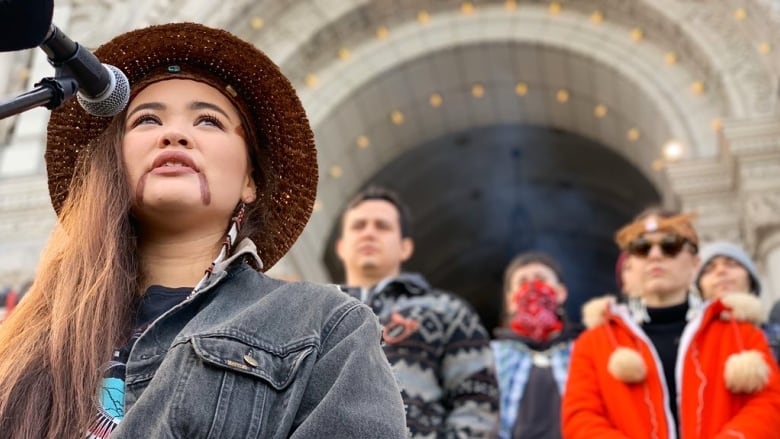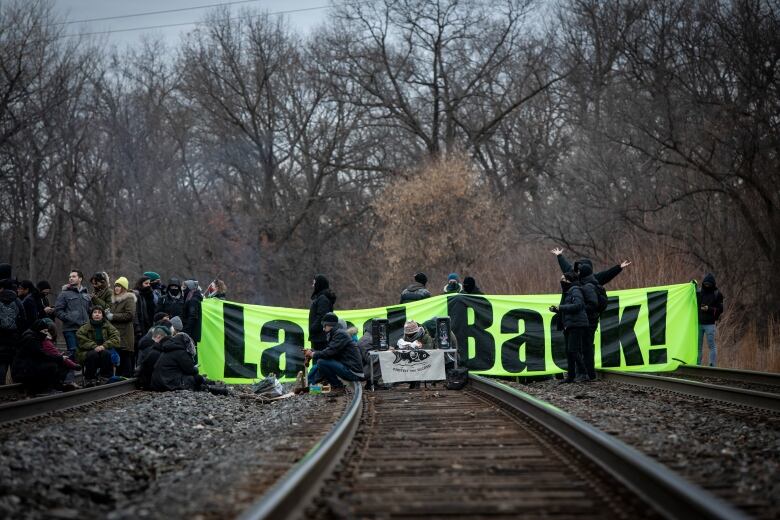'Is reconciliation dead?': Debate continues among Indigenous advocates
Attendees at weekend event in Saanich say education is a key to justice

Three attendees at a Victoria Urban Reconciliation Dialogueevent held at the Saanich Fairgrounds on Vancouver IslandFriday and Saturday may have different opinions on whether "reconciliation is dead," but they agree that it'sdifficult to tackle.
The slogan is cropping up at blockades and protests in solidarity with Wet'suwet'en hereditary chiefs who oppose a natural gas pipeline in northern B.C. and at demonstrations outside the provincial legislature.
'Never close to reconciliation'
Hayle Gallup isonthe event's steering committee and told All Points West hostKathryn Marlow that it representsreality for some Canadians.
"We were never close to achieving reconciliation as we are just barely beginning to reveal the truth," said Gallup. "It may be categorized as dead to some people and that's their true feeling. That is how they feel and we can't shy away from that."
Gallup said that as a youth advocate, she wants to createa safe place for Indigenous youth in Canada, but does not think itwill happen in her lifetime.
"The youth standing with Wet'suwet'en and our people are being attacked on social media. We're seeing racism coming through the cracks, coming to the surface. It's scary."

Should talk about reconciliation now
Patrick Harriot is the president of the Metis Nation of Greater Victoria. He said the current protests have made reconciliation a "right now" conversation as opposed to "let's talk about it later."
"Everyone needs to have this conversation. I mean indigenous, non-indigenous. Reconciliation can't happen without everyone at the table," Harriot said.
Harriot said Indigenous people should be given the space to practise being Indigenous, including speaking their ownlanguages and celebrating their ownceremonies.
"If the government has spent all this time and all these resources taking away language, taking away culture, there has to be resources and time and effort putinto giving that back, or giving the ability for Indigenous people to take that back for themselves."

Reconciliation is 'really hard work'
Ry Moran is the director of the National Centre for Truth and Reconciliation at the University of Manitoba. He saidreconciliation is still "alive and well," but it is "really really hard work."
He pointed to his experience asking young Canadiansto name Indigenous nations which they struggled to do.
"There's a very powerful disrecognition of the complex lands that we live in and the very real histories that exist here. And we've got a lot of work to do, and so much of it starts with simply understanding where we live," Moran toldGregor Craigie, host of On The Island, on Friday.
Gallup said reconciliation lies in educating the youth about Canada's colonial history, about revitalization of Indigenous languages and cultures, about justice for the murdered Indigenous women and about justice for Indigenous land defenders.
With files from All Points West and On The Island












_(720p).jpg)


 OFFICIAL HD MUSIC VIDEO.jpg)
.jpg)



























































































